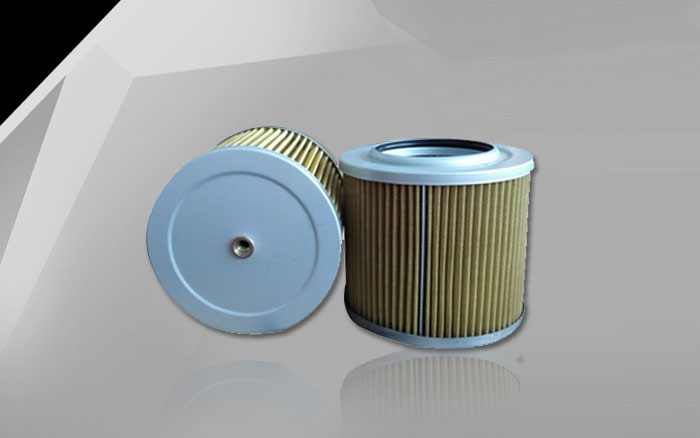We supply and distribute a variety of hydraulic filters available in a multiple of shapes, sizes, micron ratings and construction materials. Hydraulic filters provide inbuilt protection and minimize hydraulic system breakdowns that are quite often caused by contamination.
Efficient filtration helps in the prevention of system failure and makes a significant contribution to low cost of ownership. These are suitable for both low and high-pressure hydraulic applications. The life of a filter in a hydraulic system depends on the system pressures, level of contamination and nature of contaminants.

Types of Filters: Following are the types of filters used in a hydraulic system:
Surface Filters: These are simple screens used to clean oil passing through the pores. The dirty unwanted particles are collected at the top surface of the screens, when the oil is passed.
Depth Filters: These are thick walled filter elements through which the oil is made to pass retaining the undesirable foreign particles. The capacity of depth filter is much higher than surface filters as much finer materials have a chance of being arrested by these filters.
Classification of Filters
Full-Flow Filter: In a hydraulic system, it is necessary that all the flow must be through the filter element. So, the oil must enter the filter element at its inlet side and sent out through the outlet after crossing the filter element fully. In case of full flow filtration, the filter is sized to accommodate the entire oil flow at that part of the circuit.
By-Pass Filter: From time to time, there is no need to filter the entire volume of oil and thus, only a portion of the oil is passed through the filter element. The main portion is directly passed without filtration through a restricted passage.

Filter Rating: The correct rating of a hydraulic filter is very important in order to
Prevent undesirable contaminants like solids and liquid particles to enter into the system.
Prevent undesirable contaminants like solids and liquid particles to enter into the system.
Increase the ease of preventive maintenance.
Maintain timely switching functions of control valves as designed.
Increase life of filter, fluid and system components.
Maintain functional efficiency of the system and prevent operational disturbances due to filtration failure.
Minimize effect of pressure, flow and temperature variation of filter functioning.
Ensure high capacity of contaminant holding.
Ensure desired lubricity of oil and minimize chemical degradation of the fluid.
Reduce downtime due to maintenance shut down.
Ensure high reliability of filter and filtration.
Ensure continuous availability of the system.
Filter Design
It is imperative to design filter in correct type and size for a specific hydraulic system and for optimum filtration efficiency as well as system optimization. In addition, the compatibility of filter material is an essential parameter for deciding the design of filter, characteristics and its use. Whether, it is to be used in a laboratory or in a rolling mill, location and application area determines the probable contamination based on which a filter has to be designed or selected.
Filter Location
The location of a filter in the hydraulic system plays significant role. These filters are arranged at various locations either in the return line or in the pressure line. A filter may be used either in the intake side of the pump or in the outlet side of the pump.
Preferred Locations For Filters
Return Line Filter: It may reduce the amount of dirt ingested through the cylinder and seals from reaching the tank.
Return Line Filter:It may reduce the amount of dirt ingested through the cylinder and seals from reaching the tank.
Intake Filter:These are fitted before the pump so as to these filters can prevent random entry of large and other contaminants like large chips into the pump and thus prevent any damage to it.
Pressure Filter: IA pressure filter is used sometimes at the pump outlet to prevent entry of contaminants generated in the pump, into other components like valves and thus helps in avoiding the spread of such undesirable elements into the whole system. It protects valves, cylinders, etc.
Final Control Filter: Final control filter to keep out of a component the large debris that can cause thee component to fail through in-built arrangement or by additional protective design.




